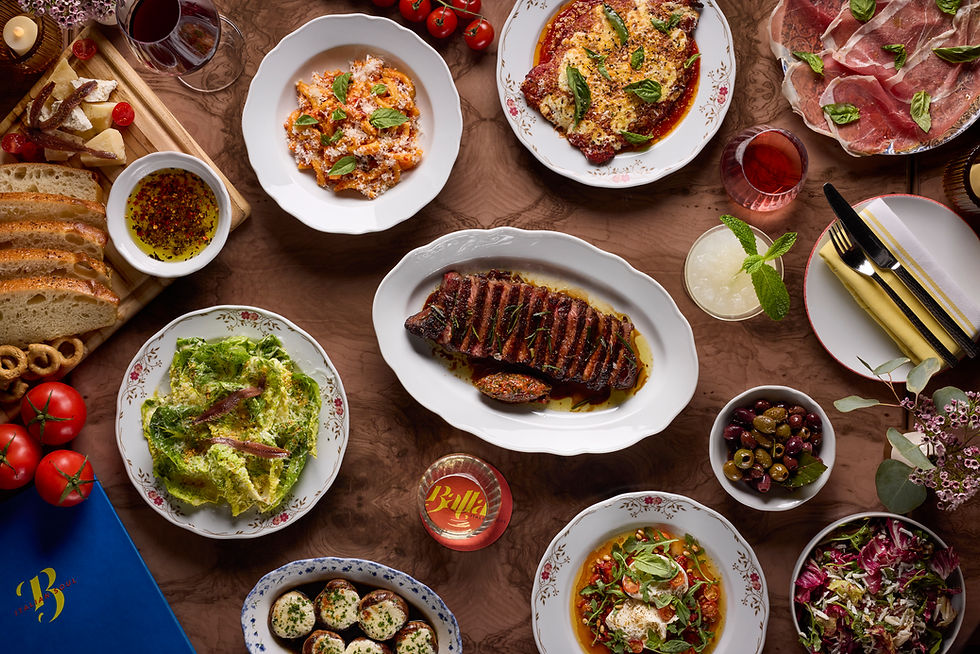Halloween Around the World: The Traditions and True Meaning Behind the Holiday
- Christianne Klein

- Oct 27, 2025
- 4 min read

When most of us think of Halloween, we picture pumpkins glowing on porches, kids dressed as superheroes, dinosaurs, or witches, the rustle of candy in plastic buckets, and the time-honored tradition of trading out your "bad candy" for the good stuff. But around the world, this spooky season carries a much deeper meaning - one rooted in remembrance, gratitude, and the changing of the seasons.
While Halloween as we know it has become a playful mix of costumes, treats, and a touch of fright, its origins reach back thousands of years to ancient harvest festivals. Today, those traditions still echo through global celebrations that honor ancestors, celebrate community, and remind us that even in the darkness, there’s beauty in remembering those who came before us.
The Celtic Origins of Halloween
The story begins with Samhain, an ancient Celtic festival celebrated in Ireland and Scotland more than 2,000 years ago. Samhain marked the end of the harvest and the start of winter - a time when the Celts believed the boundary between the living and the dead grew thin. People lit bonfires, wore costumes to disguise themselves from wandering spirits, and offered food to honor ancestors and ward off mischief.
When Christianity spread through Europe, Samhain blended with All Saints’ Day (November 1) and All Souls’ Day (November 2), giving rise to All Hallows’ Eve - what we now call Halloween.
The Story Behind the Jack-o’-Lantern
Before pumpkins became the symbol of Halloween, people in Ireland and Scotland carved turnips and potatoes to create lanterns that would ward off evil spirits. The tradition comes from an Irish folktale about “Stingy Jack,” a mischievous man who tricked the Devil and was doomed to roam the earth forever, lighting his way with a burning coal inside a hollowed-out turnip.
When Irish immigrants brought the tradition to America in the 1800s, they discovered the native pumpkin - larger, easier to carve, and perfect for their glowing lanterns. Over time, these “Jack-o’-lanterns” became a joyful symbol of Halloween’s mix of mischief and magic.

Mexico’s Día de los Muertos
In Mexico, Halloween’s ancient roots take on a colorful and joyous life of their own. Día de los Muertos, or Day of the Dead, is celebrated on November 1 and 2, transforming streets and cemeteries into bright, flower-filled tributes to loved ones who have passed. Families build altars, or ofrendas, adorned with marigolds, candles, sugar skulls, and the favorite foods of those being remembered.
It’s not about fear — it’s about connection. Families gather, tell stories, and celebrate life through food, music, and love.
Bonfires and Celebration in the UK
Across the UK, you’ll still find echoes of those Celtic bonfires, especially around Guy Fawkes Night on November 5. Though the holiday’s origins differ - commemorating the failed Gunpowder Plot of 1605 - it shares the same spirit of autumn gatherings, firelight, and community celebration.
Obon in Japan
In Japan, the Obon Festival honors ancestors in a beautiful midsummer event filled with dance, music, and glowing paper lanterns. Families return to their hometowns to pay respects, light lanterns to guide spirits, and enjoy seasonal dishes together. The emphasis on remembrance and family connection mirrors the spiritual side of Halloween’s origins.
Italy’s Sweet Traditions
In Italy, the season brings All Saints’ Day and All Souls’ Day, when families visit cemeteries to leave flowers and candles on loved ones’ graves. Bakeries fill their windows with ossa dei morti - “bones of the dead” cookies, crisp almond biscuits shaped like bones, symbolizing the sweet connection between the living and the departed.
Undás in the Philippines
Across the Philippines, families mark Undás, a nationwide tradition that’s part remembrance, part reunion. People travel home, clean and decorate graves, and share picnics and stories with relatives, turning cemeteries into lively spaces filled with music, food, and laughter.
A Global Celebration of Life
From Ireland’s bonfires to Mexico’s marigolds, one theme connects all these traditions: remembering loved ones across cultures. A theme that endures beyond time. Whether through feasts, lanterns, or whispered prayers, these celebrations remind us that honoring the past brings meaning to the present.
So wherever you are in the world this Halloween, light a candle, share a story, and remember: every culture finds its own way to honor life, death, and the magic that lies between.
Food Family Travel Tip
Looking to celebrate Halloween with meaning this year? Try one of these simple family traditions inspired by the world:
Create an altar at home - display family photos, favorite foods, and candles to honor loved ones.
Cook a traditional dish from another culture’s celebration, like Italy’s almond “bones of the dead” cookies or Mexico’s pan de muerto.
Tell family stories by candlelight - keeping memories alive connects kids to their roots.
Carve a jack-o’-lantern and share the story of Stingy Jack - a fun way to teach kids the folklore behind the glow.
Halloween may look different around the world, but its message is universal: it’s not just about spooky fun - it’s about family, memory, and the magic of connection.
Christianne Klein is an Emmy® and Edward R. Murrow Award-winning TV Host, journalist, travel and lifestyle expert, and founder of FoodFamilyTravel.com.
For more tips, trends, and inspiration, be sure to follow FoodFamilyTravel.com on social
Instagram: @food.family.travel
Tiktok: @FoodFamilyTravel


